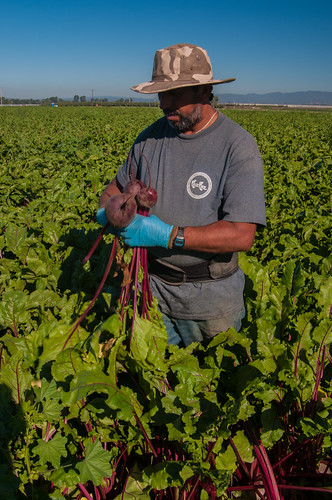More people are turning to organic gardening as a hobby and a way to get food. The easy to follow advice in this article will show you how to get out there and start planting. Coming up are a collection of organic gardening oriented tips, tricks and ideas to grow and harvest nontoxic, free, healthy, fresh, produce for your whole family.
If you want to get children in on the fun, plant a few strawberries, everbearing if possible. For kids, there are few things as fun as picking fruit fresh from the garden. Your children will be much more interesting in helping out if they know they’ll get to enjoy some tasty strawberries.
Use several inches of organic materials for mulch in your flower beds. This will discourage weeds from growing, add nutrients, and retain the moisture in your garden. Mulch also completes your garden, giving it a finished appearance.
Be efficient when working in your garden. Do not waste your time looking for tools. Prepare them all ahead of time and have them handy before you need to garden, and then put them back in their place when done. Wear pants with several pockets or use a tool belt.
Spacing is an important factor to consider when planting your garden. Amateur gardeners often make the mistake of failing to leave enough space for fully matured plants. You will need to provide this space to provide ample room and because you need air circulating to your garden. Make sure that you map out your garden layout beforehand and place your seeds with an adequate amount of space in between each.
Stay on top of your organic gardening to-do list, and don’t let the work pile up. Even if you can’t tend to your garden daily, you can do little things to help so that there is not a huge amount of work to be done when you are ready to get back to it. If you’re outside with your pet, try to remove weeds when your pet is doing his business.
You can use something like a laundry basket to gather all of your produce together when the time comes. This will be like a strainer for all your produce. Rinse the product off whilst it’s in the basket so that any extra water can strain through the laundry basket’s holes.
When developing your compost pile, use equal measures of dried and green material. When you pull weeds from your garden, throw them in the compost. The same goes for vegetable trimmings and grass clippings. These are considered green materials. For the dry end of the spectrum, think of things like paper and cardboard, sawdust, hay, etc. Materials to avoid during composting include diseased plants, meat, ashes and charcoal.
A good thing to know when it comes to your organic garden, and running it, is to, a couple times a day, lightly ruffle the seedlings with cardboard or your hand. This will sound a bit strange. However, it has been proven to cause plants to grow larger.
Your watering schedule should flow perfectly with the seasons, yet be adjustable according to climate. The amount of water you need depends on when you are doing the watering, whether your water is high-quality and the grade of the soil in your garden. In warm climates with high humidity, for instance, plants often develop fungal infections when water is applied to the leaves. You have to make sure to water the root system.
Among the most important features of organic produce is the fact that it has not been exposed to harmful pesticides. This will improve your family’s overall health, but it does mean you have to be extra vigilant about checking for pest infestations.
As you can see, keeping up with an organic garden is both challenging and rewarding. It takes time and patience. Start using these tips to direct your efforts in the right direction. Regardless of what you are growing in your organic garden, applying the tips and techniques provided in this article will surely help you achieve your goals.
–
